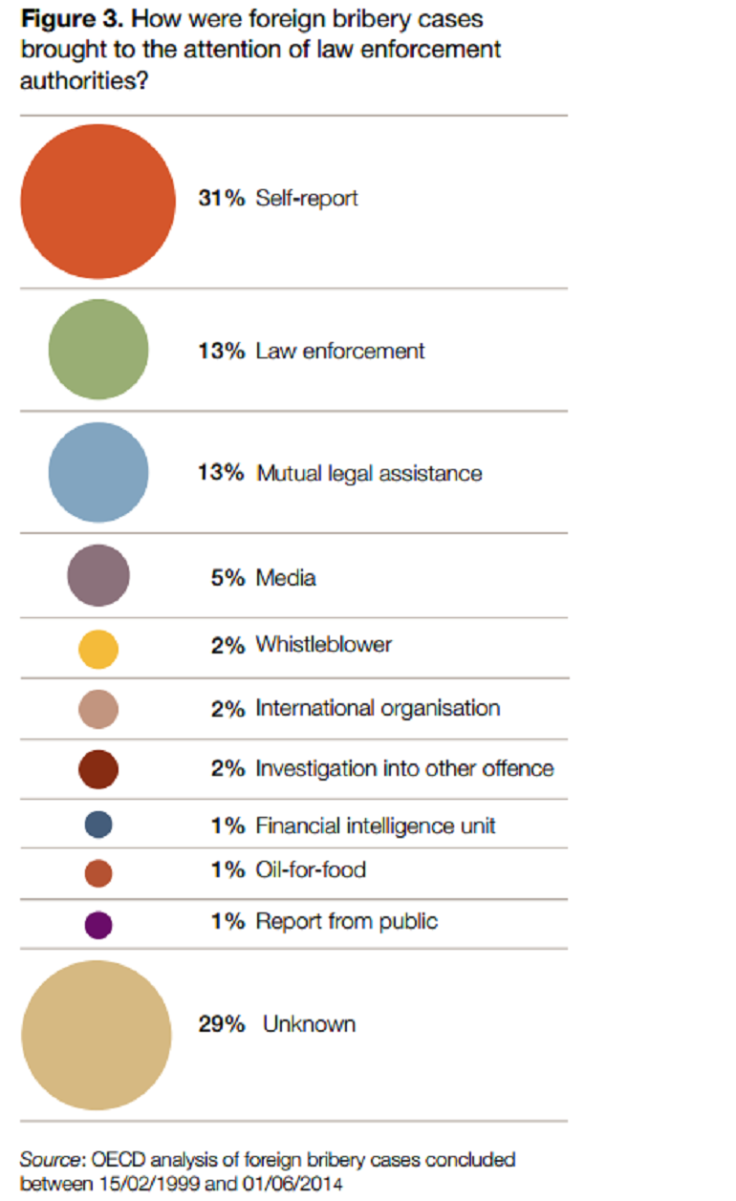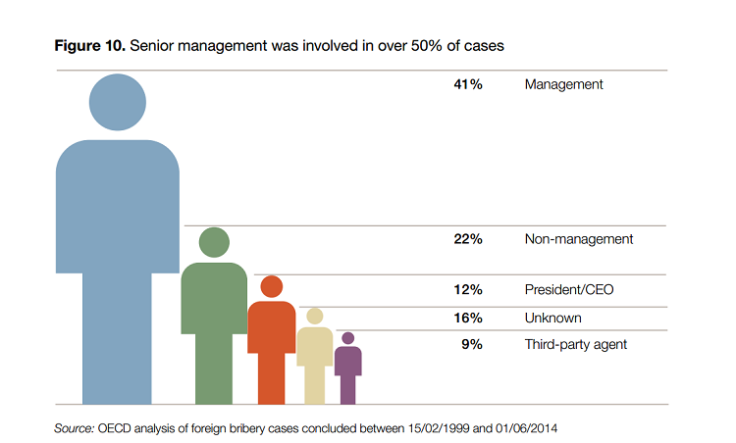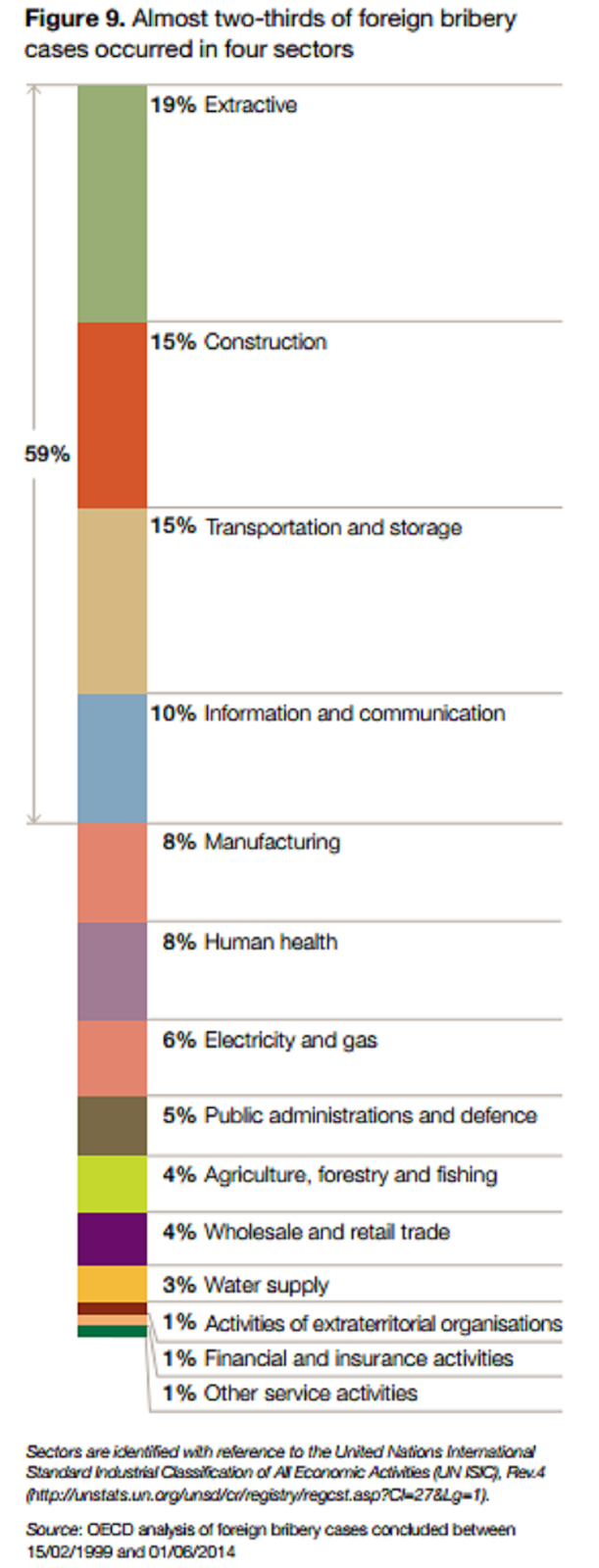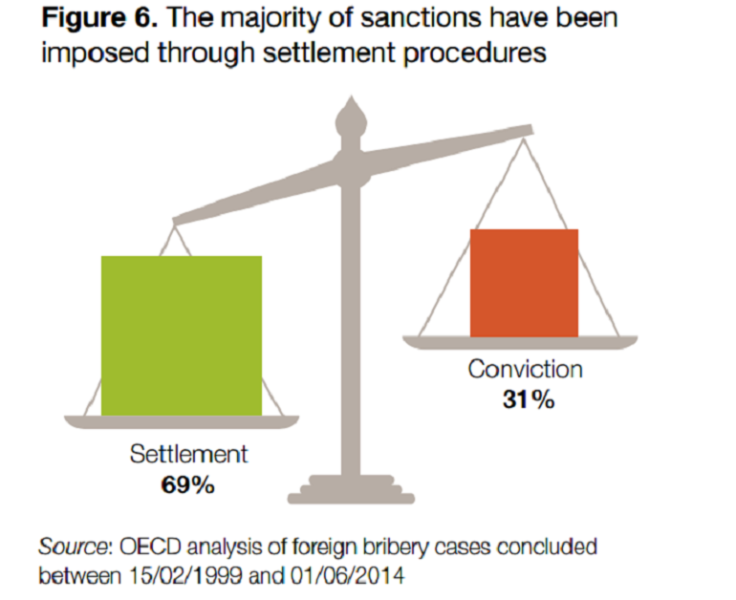OECD Foreign Bribery Report Outlines Corrupt Business Practices

Big companies are some of the worst offenders in foreign corruption cases, but they are also increasingly policing themselves and self-reporting instances of bribery, new data show.
The Organization for Economic Cooperation and Development analyzed 427 cases of foreign bribery in 17 countries to determine who’s bribing who, and how authorities are discovering corrupt practices. While the report has a lot of information, it doesn't contain specifics about particular companies or cases, but focuses on broad patterns.
Among other things, researchers found that one in three corruption cases were voluntarily disclosed to law enforcement by the companies involved, after they discovered the issue through their own internal audits.
“This could be an indication of willingness on the part of companies to self-report in countries whose legal systems permit voluntary disclosure, especially when such behavior leads to mitigated sanctions,” the report says. In many cases, companies that self-report face a lighter sentence.
After self-reporting, the most common method of exposure for bribery cases was due diligence conducted before mergers and acquisitions, which represented about 28 percent of cases. Local law enforcement managed to uncover 13 percent of cases, investigative journalism uncovered 5 percent, while just 2 percent were brought to light by whistleblowers.

“In order to fight corruption and win, we have to know our enemy,” OECD Secretary-General Angel Gurria wrote in the introduction of the report released on Tuesday, adding that the new data “brings us face to face with our foe.
“Often disguised through a series of offshore transactions, multiple intermediaries and complex corporate structures, the detection, investigation and sanctioning of foreign bribery requires expertise, time and cooperation.”
The findings are the result of analysis from 427 foreign bribery cases involving 263 individuals and 164 companies from February 1999 to June 2014. And the results show much more than the different ways companies are getting themselves in trouble.
Researchers also found that, despite what they may say later on, 53 percent of bribery cases happened with full knowledge of corporate management or even chief executives.
“Corporate leadership is involved, or at least aware, of the practice of foreign bribery in most cases, rebutting perceptions of bribery as the act of rogue employees,” Gurria wrote.

The numbers also indicate the types of companies that are most likely to participate in bribery.
“We have learned that bribes are being paid across sectors to officials from countries at all stages of economic development,” Gurria wrote.
However, the OECD found that nearly two-thirds of all foreign bribery cases occurred in just four sectors. The extractive oil and mining industry was by far the leader, with 19 percent of all cases. Construction and transportation followed after, with 15 percent each, while information and communication companies accounted for 10 percent.

Of course, once the bribery is reported, companies have to pay up. The OECD Anti-Bribery Convention requires all parties to “confiscate the instrument of the bribe and its proceeds,” as well as provide for “effective, proportionate and dissuasive” sanctions.
The most popular method of punishment was a civil or criminal fine, which happened in 261 cases. Otherwise, offenders were met with confiscation, imprisonment or other methods of payback. To date, a total of $5.4 billion has been imposed through monetary sanctions, mostly through settlements, rather than convictions, the report shows.

“With this report, I challenge governments, business and society to change the incentives,” Gurria wrote. “Collective action is needed to win the war against corruption and we are now better equipped than ever to prevent, detect and punish this crime and give the fight against foreign bribery the priority it deserves.”
© Copyright IBTimes 2025. All rights reserved.






















